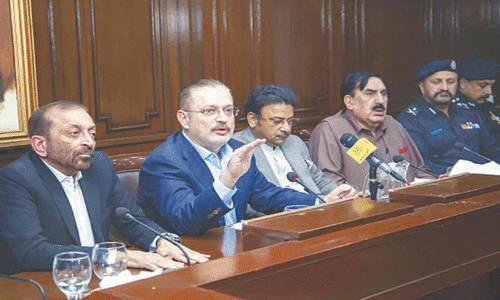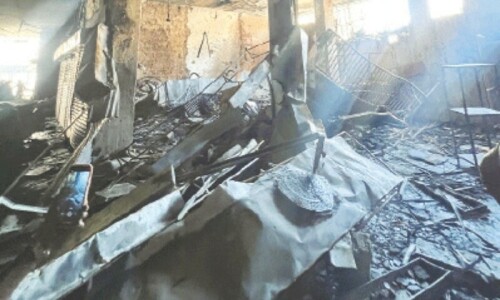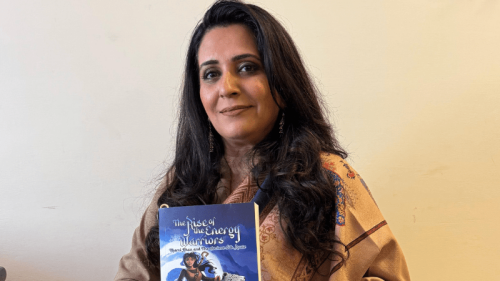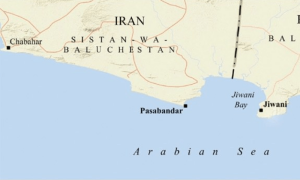KARACHI: The largest chunk of Sindh’s budget (27 per cent) has been allocated for the education sector for fiscal year 2017-18, documents show on Monday.
Next fiscal’s allocation of Rs181.5 billion for education includes allocations for higher education, technical education, special education and medical education.
“This is an increase of 13pc over allocations of 160.7 billion of the current financial year,” said a budget document.
However, as the documents admitted, the salary component of the education ministry has been increased by 15pc, while the non-salary component has been augmented by 9pc.
The ADP allocation for education has been increased to Rs21.1bn, including Rs3.6bn kept separately for the boards and universities, Rs1.06bn for Sindh Technical Education and Vocational Training Authority (Stevta), and Rs200 million for special education and Rs5bn for college education.
Besides the provincial ADP, Rs2.9bn has been allocated for foreign-funded projects of the education ministry, Rs3.6bn for the universities and boards, Rs1.06bn for Stevta, and Rs213m for special education.
For the next fiscal, the documents show, the provincial government has allocated Rs74.2bn (20pc increase), Rs5bn on medical (22pc increase), 10pc increase (Rs37.1bn) on administration and works, 9pc each increase on colleges (Rs13.4bn) and special education (Rs904m), respectively; a six per cent increase (Rs40.5bn) on secondary and higher secondary education, and as much increase (Rs5.3bn) on universities, and three per cent increase (Rs5.3bn) on technical education.
The key initiatives included Rs4.6bn for school-specific budget for furniture, stationery, travelling and other heads, Rs1.5bn for girl stipends, Rs1.5bn for the school management committees. Rs1bn has been kept for exemption of fees for registration, enrolment and annual examination, Rs1bn is proposed for the education management organisation, Rs7bn is proposed for repair and maintenance and rehabilitation of schools, and Rs8bn has been kept for the Sindh Education Foundation.
Under medical education, 15 new medical institutions are regularised — 14 midwifery institutions and Khairpur Medical University.
Rs750m is kept for students securing A1 grade in SSC and HSC in Sindh.
Besides, Rs600m is kept for the establishment of comprehensive schools in Sindh, and establishment of a cadet college for girls in Benazirabad district with an allocation of Rs644m.
Some 65pc of the education sector will be spent on salaries, 24pc would be used on the non-salary component and the remaining 11pc would be kept for development.
Health allocations
An allocation of Rs100.32bn has been proposed in the next budget against Rs79.88bn of 2016-17. The ADP of health is pitched at Rs15.50bn compared to an allocation of Rs14bn of the current fiscal.
Being the third largest sector in terms of resource allocation, the next fiscal would get an increase of 26pc in total allocation for the health sector.
The current revenue expenditure of the health ministry, excluding medical education, has been increased by 37pc from Rs61.7bn now to Rs84.8bn for the next fiscal.
The allocation for the medical sector has been kept at Rs7.9bn. Surgical instruments, oxygen, consumables, X-ray films, and dietary charges of patients have been increased to Rs2bn.
The allocation for repair and maintenance of machinery, equipment and ambulances are enhanced to Rs1.14bn.
The share for PPHI Sindh has been enhanced by 29pc — from Rs3.8bn to Rs4.98bn.
The budget of the National Institute of Cardiovascular Diseases (NICVD) has been enhanced from Rs1.8bn to Rs5.8bn, including Rs4bn for NICVD Karachi and Rs694.5m for Faryal Talpur Cardiac Surgery Complex Larkana and Rs694.5m for Benazir Bhutto Cardiac Hospital, Tando Mohammad Khan, and Rs380m for poor patients.
The grant-in-aid budget of the Indus Hospital Karachi has been enhanced from Rs500m to Rs1bn. The budget of Abdullah Shah Institute has been increased from Rs100m to Rs862.9m.
For reduction of stunting and malnutrition, Rs2.4bn has been kept for Accelerated Action Programme.
Some 25,000 new posts will be created at different levels of health management with Rs7.7bn, including Rs6.5bn for the lady health workers’ programme. Rs690.1m has been kept for the EPI programme.
Regular or annual recurring grant-in-aid for the Sindh Institute of Urology and Transplantation has been increased from Rs4bn to Rs5bn, including Rs4.5bn for SIUT Karachi, Rs522.5m for the multi-organ transplant centre, SIUT Kathore, Karachi, and Rs70m for the establishment of children hospital at the SIUT, Karachi.
Next year’s health ADP is pitched at Rs15.5bn, including Rs6.6bn for various hospitals, Rs2.8bn for teaching hospitals and Rs4bn for preventive programmes. Besides the provincial ADP, Rs3.3bn has been allocated for foreign-funded projects of the health ministry.
Rs1.8bn has been kept for the Sindh Immunisation Support Programme, Rs900m for Hepatitis Control Programme, Rs500m for the establishment of Ghulam Mohammad Maher Medical College, Sukkur, Rs359m for establishment of Benazir Institute of Urology and Transplantation at Benazirabad; Rs332.5m are kept for upgrading of taluka headquarters hospitals to the level of district headquarters hospitals; Rs209m has been allocated for expansion and improvement of DHQ hospitals in Khairpur, Badin and Shikarpur districts; Rs325.5m has been earmarked for the provision of equipment for the surgical complex at the Jinnah Postgraduate Medical Centre, and strengthening of the malaria control programme with an allocation of Rs203m.
The health sector’s share is 8.5pc in the total outlay of which 39pc is for salary, 23pc for non-salary, 16pc for development and the rest for other heads.
Published in Dawn, June 6th, 2017















































Dear visitor, the comments section is undergoing an overhaul and will return soon.